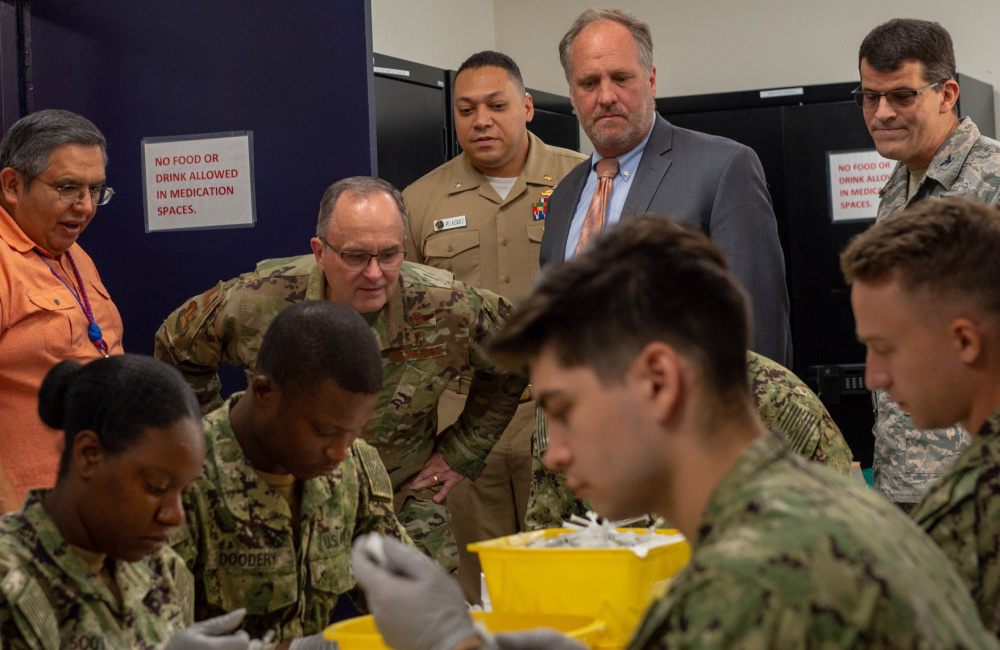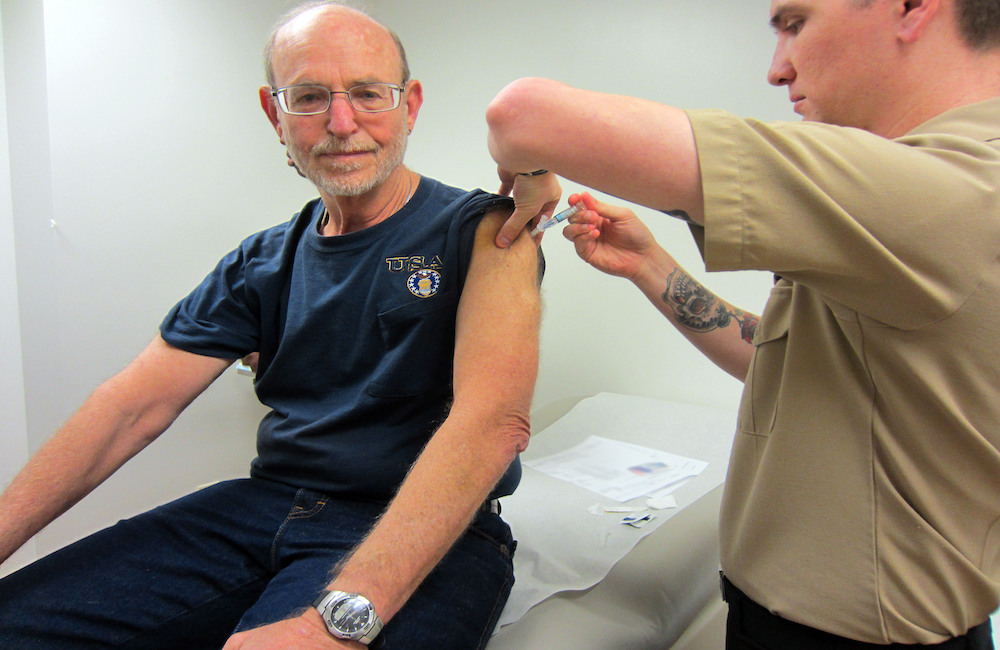Defense Health Officials Tout Consolidation Successes in Budget Hearing
The officials report successful transition of MTFs to DHA and MHS GENESIS EHR deployments to House members.

Several top Defense Department and Defense Health Agency officials emphasized that Congress needs to continue supporting DHA’s momentum in establishing new military treatment facility markets and initiating waves of MHS GENESIS implementation at a House Appropriations Committee hearing Thursday.
Assistant Secretary of Defense for Health Affairs Thomas McCaffery proposed to the committee a $33.1 billion budget for the Defense Health Program in fiscal year 2021, marking a $1 billion increase from FY2020. The proposed budget, McCaffery said, will help maintain a number of efforts DHA and DOD as a whole are making to drive efficiencies into their operations and to improve care.
“Some of the significant reforms are the following: consolidated administration and management of our military hospitals and clinics under the … Defense Health Agency, rightsizing our military medical infrastructure to focus on readiness within our direct care system and finally optimizing the size and composition of the military medical force to best meet our readiness mission,” McCaffery said, emphasizing that deploying the joint electronic health record — MHS GENESIS — and advancing research are key drivers behind these initiatives.
Consolidation has also been a key driver across the Military Health System this past year. DHA absorbed all medical administrative and management responsibilities of the individual service branches in October, launched four markets to deliver more tightly run care early this year and has advanced in MHS GENESIS deployment through Wave Travis in September and soon with Wave Nellis this summer.
Defense Healthcare Management Systems Program Executive Officer Bill Tinston highlighted to the committee that Wave Travis saw four successful deployments in California and Idaho without patient safety issues and that Wave Nellis will see more than double the number of deployed sites. He also reported that defense medical personnel opted to use MHS GENESIS from initial deployment.
“The medical staff at Travis Air Force Base demonstrated competence in MHS GENESIS on day one when a patient arrived at the emergency room in sudden cardiac arrest two hours before the official go-live,” Tinston said. “The team had a choice. They chose MHS GENESIS, and that was the right decision. With every deployment, we hone our process and improve capability delivery.”
Ooverall, Tinston’s team has 66 medical facility sites lined up to receive MHS GENESIS deployment in the coming future.
Committee members were critical of DHA’s activities, questioning why it needs more budgeting money when the agency had yet to achieve its results. The Army and Air Force surgeon generals, however, emphasized that DHA is in a moment of transition — and that successful transition is critical for achieving successes and maintaining stable care for military health beneficiaries.
“We need to transition before we transform,” said Air Force Surgeon General Dorothy Hogg. “We need to help them do this mission. I would ask that we not add additional system changes until the Defense Health Agency is standing on their own.”
“In order to get it right, the focus should be on the MTF transitions,” added Army Surgeon General Thomas Dingle. “It starts with a step to stand up that headquarters. [DHA] headquarters is not operationally running, and it will continue to require that direct support. After you get that headquarters stood up, then you can start transition to military medical treatment facilities, and then we should also be focusing in that transition in that electronic health record.”
DHA Director Gen. Ronald Place reported that the rollout of the DHA MTF markets — a challenge because of the complexities of absorbing each of the services under its wing — is overall successful.
“In general, as we measure the effectiveness of the care that we’re delivering and measure the effectiveness of our action plan, we’re actually making good improvements in the quality of care, the speed with which we’re delivering the care and the use of the resources that the Congress has been generous enough to provide,” Place said.
Place added that the D.C. regional market DHA recently launched is seeing particular success.
“In D.C., for example, [we were able] to utilize all the resources of each of the facilities to include the staff to align them more appropriately to the location where they can best provide health care,” Place said. “Similarly, we’re able to use the particular location, whether you’re enrolled to this particular military medical treatment facility or another, to move patients around, to achieve the best quality of care, so the standardization within the market has been a success.”
The officials also said they will focus on working closely with medical staff throughout these transitions, such as with the MHS GENESIS rollout, to ensure minimal disruptions in workflows and care.
“You have to work to deliver the right capability in the record, which we’ve done,” Tinston said of MHS GENESIS. “You then have to customize that record to meet the physical plant of the facilities that you’re supporting, and you have to train people to be effective clinically with the new workflows that you’ve introduced. So it’s not just to turn it on and let everyone start using it. You have to be very deliberate about bringing people up to speed so that they can be effective. We don’t compromise the health care delivery as we deploy MHS GENESIS.”
This is a carousel with manually rotating slides. Use Next and Previous buttons to navigate or jump to a slide with the slide dots
-

CDC Updates Public Health Data Strategy
Accelerating data sharing through capabilities like electronic case reporting make up a large portion of the new two-year plan.
3m read -

HHS Makes One-Stop Cybersecurity Shop in ASPR
The agency is working on standards and cyber incident response capabilities to help health care organizations combat ransomware threats.
4m read -

Women Technologists Highlight Workforce Impacts in FDA IT Plan
Tech leaders tackle amplifying women in the workforce as the agency works toward its two-year IT modernization plan.
3m read -

VA Kicks Off EHR Program at Joint Facility with DOD
The agency's Dr. Neil Evans briefed how the Oracle-Cerner program rollout in North Chicago is informing next steps in EHR modernization.
4m read




